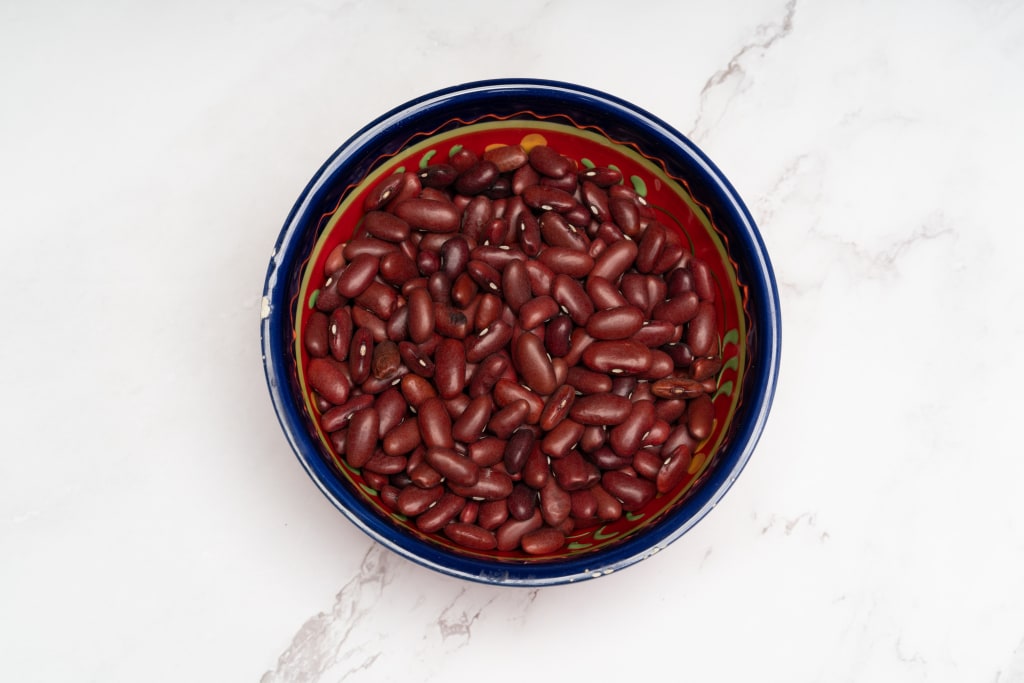Boost Kidney Health
7 Vegetarian Superfoods to Boost Kidney Health

The kidneys are essential organs that play a vital role in maintaining overall health. They filter waste and toxins from the blood, regulate fluid balance, and produce essential hormones. A healthy diet is important for supporting optimal kidney function. Vegetarians can include nutrient-dense superfoods in their diet to boost kidney health.
1. Kale
Kale is a leafy green vegetable that is packed with nutrients, making it a healthy addition to any diet. It is a good source of vitamins A, C, and K, as well as fiber and potassium.
Kale is low in potassium, which makes it a good choice for people with kidney disease. People with kidney disease need to limit their intake of potassium because their kidneys are not able to remove it from the body as effectively as healthy kidneys.
The antioxidants in kale help protect the kidneys from damage. Antioxidants are substances that help neutralize free radicals, which are unstable molecules that can damage cells. Damage to the kidneys can lead to kidney disease.
There are many ways to enjoy kale. It can be eaten raw in salads, cooked in sautéed dishes, or added to smoothies.
2. Red bell
Red bell peppers are a vibrant and delicious vegetable that is also incredibly nutritious. They are an excellent source of vitamins A, C, and B6, as well as folic acid and fiber.
Red bell peppers are low in potassium, making them a good choice for people who have kidney disease or are on a restricted potassium diet.
The high vitamin C content in red bell peppers can help to reduce the risk of kidney stones. Vitamin C helps to increase citrate levels in the urine, which inhibits the formation of kidney stones.
There are many ways to enjoy red bell peppers. They can be eaten raw in salads, roasted as a side dish, or stuffed with other kidney-friendly ingredients.
3. Cauliflower
Cauliflower is a versatile vegetable that is packed with nutrients, making it a great addition to any diet. It is a good source of vitamin C, vitamin K, and various B vitamins, such as B6 and folate.
Cauliflower is also low in potassium and phosphorus, which makes it a good choice for people with kidney disease.
Sulforaphane is a compound found in cruciferous vegetables like cauliflower, which has been shown to have beneficial effects on kidney health. Sulforaphane helps to protect the kidneys from damage and inflammation.
There are many ways to enjoy cauliflower. It can be eaten raw, cooked, or juiced.
4. Cranberries
Cranberries are a popular fruit known for their ability to prevent urinary tract infections (UTIs). They contain proanthocyanidins, which are compounds that prevent bacteria from adhering to the urinary tract walls, making it difficult for them to cause an infection.
In addition to their UTI-fighting properties, cranberries are also a good source of vitamin C and antioxidants, which can benefit overall kidney health. Vitamin C helps to keep the kidneys healthy by preventing damage from free radicals, and antioxidants help to reduce inflammation.
To reap the kidney-boosting benefits of cranberries, you can choose unsweetened cranberry juice or incorporate fresh or dried cranberries into your meals and snacks.
5. Quinoa
Quinoa is a nutrient-dense pseudo-grain that provides a complete protein source. It is also rich in fiber, magnesium, iron, and phosphorus.
Although quinoa contains phosphorus, which can be harmful to people with kidney disease, it is still considered a kidney-friendly grain when consumed in moderation. This is because quinoa is a good source of other nutrients that are important for kidney health, such as fiber and magnesium.
The high fiber content in quinoa can help regulate blood sugar levels and improve cholesterol levels. Fiber can also help to reduce the risk of kidney stones.
Magnesium is an important mineral for kidney function. It helps to regulate blood pressure and reduce inflammation.
Iron is essential for red blood cell production. Red blood cells transport oxygen throughout the body, including to the kidneys.
Quinoa is a versatile grain that can be enjoyed in many different ways. It can be cooked like rice and used as a base for salads, soups, and stews. It can also be added to granola, yogurt, or smoothies.
If you have kidney disease, it is important to talk to your doctor about how much quinoa you can safely eat. However, quinoa can be a healthy and delicious addition to your diet if you are looking for a grain that is rich in nutrients and supports kidney health.
6. Blueberries
Blueberries are a delicious and nutritious fruit that is packed with antioxidants. These antioxidants can help to protect the kidneys from damage and inflammation.
Blueberries are particularly rich in anthocyanins, which are pigments that give blueberries their vibrant color. Anthocyanins have been shown to have beneficial effects on kidney health, including reducing inflammation and oxidative stress.
In addition to anthocyanins, blueberries are also a good source of vitamin C, vitamin K, and fiber. Vitamin C is an antioxidant that helps to protect the kidneys from damage, while vitamin K helps to regulate blood clotting and reduce the risk of kidney stones. Fiber can help to keep the kidneys healthy by preventing constipation and promoting regular bowel movements.
Blueberries can be enjoyed in many different ways. They can be eaten fresh, frozen, or added to smoothies, yogurt, oatmeal, or cereal.
7. Garlic
Garlic is a flavorful ingredient that can be added to many dishes. It is also a good source of nutrients that are important for kidney health, including vitamin C, vitamin B6, and selenium.
Garlic contains a compound called allicin, which is responsible for its distinctive smell and flavor. Allicin has been shown to have antioxidant and anti-inflammatory properties.
Antioxidants help to protect the body’s cells from damage caused by free radicals. Free radicals are unstable molecules that can damage cells, leading to a variety of health problems.
Inflammation is a natural response to injury or infection. However, chronic inflammation can damage tissues and organs.
Studies have shown that allicin may help to protect the kidneys from damage caused by oxidative stress and inflammation. It may also help to reduce the risk of kidney disease.
You can incorporate garlic into your diet in many different ways. It can be added to cooked dishes, such as stir-fries, soups, and stews. It can also be eaten raw or roasted.
If you’re looking for a flavorful and healthy way to support your kidney health, garlic is a good option.





Comments
There are no comments for this story
Be the first to respond and start the conversation.